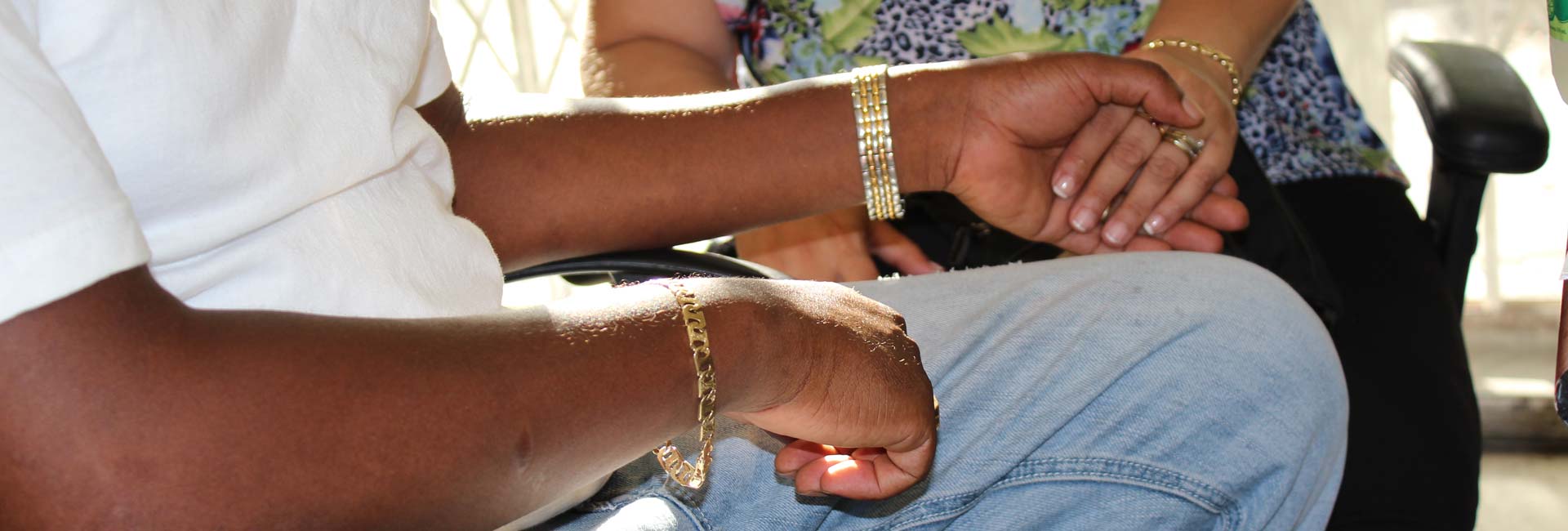

Miami Law’s Rebecca Sharpless and David Abraham discuss changes and policies regarding immigration in the Caribbean.
On the campaign trail, President Donald J. Trump promised aggressive immigration policies. Through executive order and shifts in enforcement priorities, the Trump administration has implemented changes—both in blocking entry to the United States and carrying out widespread deportations. Miami Law’s Immigration Clinic Director Rebecca Sharpless and Professor David Abraham met to discuss the state of immigration in the U.S. as it relates to the Caribbean.
UM News: The state of immigration is the area most in flux both under changes at the end of the last administration and the beginning of the present one. What are you seeing?
Rebecca Sharpless: We are seeing Cuban immigrants detained in county jails for the first time ever—Cubans with no criminal history who would be eligible for the Cuban Adjustment Act. I think the new normal is that Cubans and non-Cubans will be treated the same way, which is not well, even with respect to people fleeing persecution or extreme poverty.
About the Photo
Changes in immigration policies in the U.S. can mean complicated emotions for families from the Caribbean and around the world.
Join the Conversation:
Follow on Twitter:
University of Miami Law
School, @MiamiLawSchool
University of Miami, @univmiami
UM News, @univmiaminews
David Abraham: The future of Cuban-American relations, particularly regarding immigration, seems very much up in the air. The longtime special quality of Cuban migration, hung on anti-Communism, is behind us. The Cuban Adjustment Act is behind us. Just as Cuba becomes an ordinary foreign country, the entire immigration regime in the U.S. is in question, and we may be operating in an entirely new environment.
For the past 50 years, we've been operating like the Cubans get a free pass because any Cuban who touches American soil was a year away from permanent residency unless they committed a felony, whereas every Haitian was headed to detention and deportation. One was fleeing a failed state and a bad economy, and the other was a victim of a Communist monster. I find it ironic that they are now simply in the same lousy situation.
Sharpless: I would suggest that we reframe that and level up instead of level down. Why is it that we feel it is necessary to take away from Cubans what we see as an exclusive benefit for them as opposed to being more open-minded about treating people from other countries in the same manner?
UM News: Can you talk a little about the work that the Miami Law clinics have done with regard to the Caribbean Basin over the years?
Sharpless: The earthquake of 2010 was a tragedy for Haitians both on the island and in the U.S. The administration granted temporary protected status, allowing for some people who were here to legally stay. Individuals who were not given the status were deported into horrible conditions in Haiti. The deportees were jailed, one man even died within a week of return. Students in the clinic and the supervising attorneys fanned out into the Haitian communities to assist with applications for TPS and worked to caution the United States against deporting people into post-earthquake Haiti until there were safe and secure conditions.
The clinics were heavily involved in human rights reporting on the dire conditions in the country. Clinic students traveled and interviewed newly deported Haitians about the conditions in the jails and the country. People were living in the streets, not able to access medical care or medications. The situation was beyond desperate. We used the reporting to produce a 100-page report that was used to appeal to the United Nations Human Rights Committee.
Abraham: Haiti is certainly a place with a terribly long road to go before it approaches anything resembling a stable political system, let alone social prosperity. There are many folks who would say that if a Haitian found himself in Cuba tomorrow, he'd think he died and went to heaven. I wonder if the U.S., as a neighbor, might historically bear some responsibility and have an obligation that we don't have elsewhere in the world.
Sharpless: That is both true and the argument that we made when we were advocating that the U.S. suspend deportations to Haiti. The question always was: What is so special about Haiti? There are acute circumstances in many, many countries. But I do think Haiti, especially post-earthquake, was a very compelling situation.
UM News: What do you see, both in advocacy and in scholarship, as the role of Miami Law moving into the future of Cuba and the region as a whole?
Abraham: Miami Law is very privileged to have a number of very active and effective scholars and clinical activists in the immigration area. What is bad news for the country might very well be an occasion for Miami Law to become an even more prominent actor in both scholarship and advocacy. It's clear that the U.S. government would like to see more highly skilled and affluent people immigrating, yet historically, “give me your tired, your poor, your huddled masses yearning to breathe free” is something for which we need to be advocates. I can only think of two or three other universities in the U.S. that have as many people dedicated to and involved in this work as we do.
Sharpless: I couldn't agree more, and I am trying to take the long view. The current administration has done a good job of abstracting people and making them seem like strangers when they are not. We need to put a human face on those who are being targeted. We will get through the next four years and come out on the other side having learned much. Our country will learn that we are committed to human rights and immigrant rights and providing shelter. As a clinic on the forefront, we will use these lessons to make humane change.
- CATHARINE SKIPP / UM News
